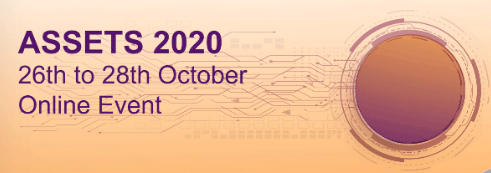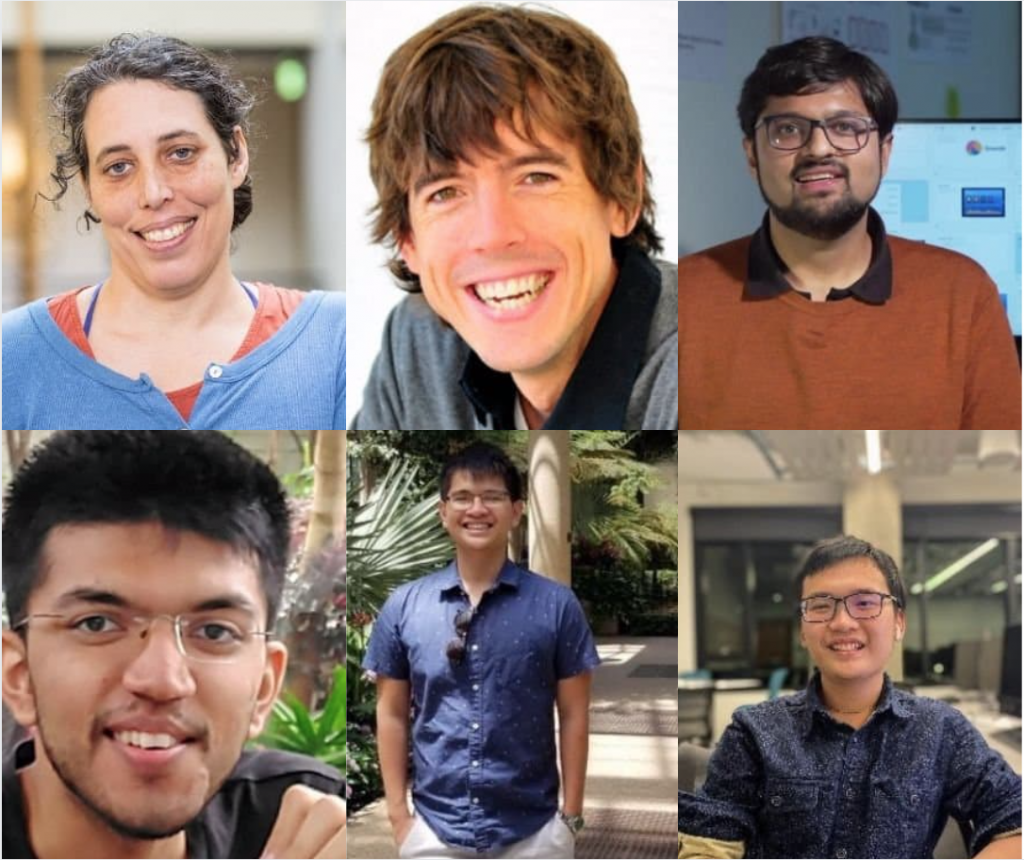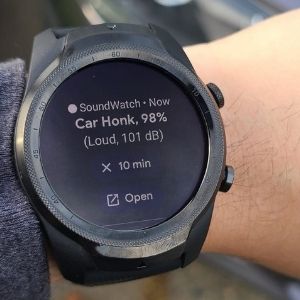
The robust impact that the Allen School and the University of Washington have in contributing to accessible technology was recognized at the 22nd International ACM SIGACCESS Conference on Computer and Accessibility (ASSETS 2020) held virtually last month. Researchers from the Allen School and the UW contributed to the Best Student Paper, Best Artifact and the Best Paper.
A team led by UW Human Centered Design & Engineering alumna and Carnegie Mellon University postdoc Cynthia Bennett earned the Best Student Paper Award for Living Disability Theory: Reflections on Access, Research and Design. The paper was co-written by lead author Megan Hoffman, a Ph.D. student at CMU, along with Allen School professor Jennifer Mankoff and City University of New York professor Devva Kasnitz. The paper emphasizes the importance of integrating disability studies perspectives and disabled people into accessibility research.

Bottom left to right: Patel, Ngo, Nguyen
In the paper, the authors correlate personal experiences with theoretical experiences. They found that while accessibility research tends to focus on creating technology related to impairment, without including disability studies — which seeks to understand disability and advocate against ableist systems — accessibility research isn’t as inclusive as its intended purpose. From their research and personal experiences, the authors exemplify how disability is often mired in ableism and oversimplified. They urge disability researchers to commit to recognizing and repairing ableism; study disability beyond diagnosis; incorporate a disability studies perspective that includes disabled voices; and incorporate reflexive, interpretivist study as a regular and essential practice.
“It was so inspiring to learn from and be part of the team writing this paper,” said Mankoff, who leads the Allen School’s Make4All group. “More than anything it showed me that the next generation of scholars are already leading the way in defining what matters in our scholarship.”
Members of the Allen School also contributed to the Best Artifact: SoundWatch, a smartwatch app for d/Deaf and hard-of-hearing people who want to be aware of nearby sounds. The creators are Allen School Ph.D. student and lead author Dhruv Jain, Pratyush Patel and professor Jon Froehlich; undergraduates Hung Ngo and Khoa Nguyen; HCDE professor and Allen School adjunct professor Leah Findlater; Ph.D. student Steven Goodman; and research scientist Rachel Grossman-Kahn.

SoundWatch is an app for Android smartwatches that uses machine learning to alert users of sounds like nearby fire alarms and beeping microwaves, making their environment more accessible. Soundwatch identifies the sound and alerts the user with a friendly buzz along with information about the sound on the screen of the watch.
“This technology provides people with a way to experience sounds that require an action — such as getting food from the microwave when it beeps. But these devices can also enhance people’s experiences and help them feel more connected to the world,” said Jain in a recent UW News release. “I use the watch prototype to notice birds chirping and waterfall sounds when I am hiking. It makes me feel present in nature. My hope is that other d/Deaf and hard-of-hearing people who are interested in sounds will also find SoundWatch helpful.”
Findlater also worked with HCDE Ph.D. student Lotus Zhang on a paper that won the Best Paper Award, A Large Dataset and Summary Analysis of Age, Motor Ability and Imput Performance. That work aims to foster a more nuanced understanding of how age and motor ability impact mobility performance, in this instance, the use of a mouse and touchscreen.
“The University of Washington has been a leader in accessible technology research, design, engineering, and evaluation for years,” said iSchool professor and Allen School adjunct professor Jacob O. Wobbrock, who, along with Mankoff, serves as founding co-director of the UW’s Center for Research and Education on Accessible Technology and Experiences (CREATE).”This latest round of awards from ACM ASSETS is further testament to the great work being done at the UW. Now, with the recent launch of CREATE, our award-winning faculty and students are brought together like never before, and we are already seeing the great things that come of it.”
Congratulations to all of the ASSETS 2020 award recipients!

